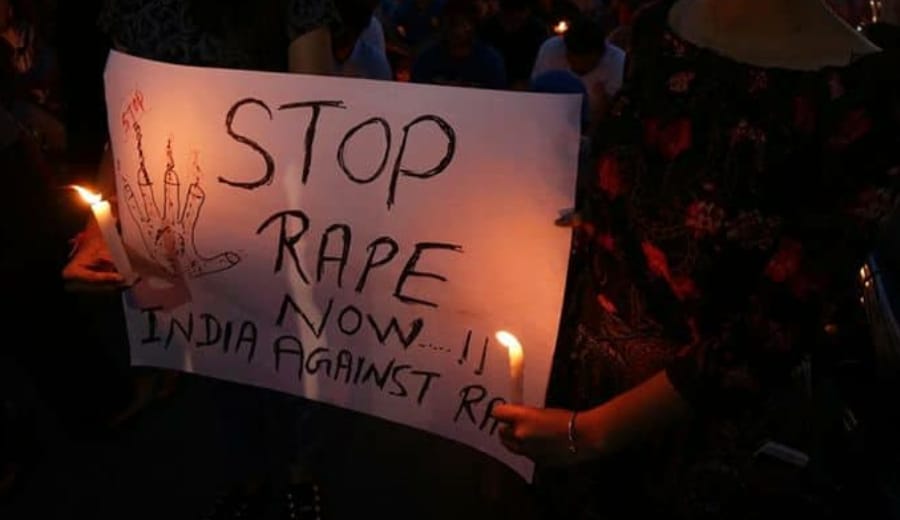3 Out Of 4 Accused Men Surrender In Gujarat’s Dalit Girl Rape And Murder Case

A 19-year-old Dalit girl was allegedly gang-raped and then was hanged on a tree to make it seem like a suicide case in Gujarat’s Madosa.
Three out of the four accused persons surrender before the police a week after her dead body was found hanging from a tree.

We all are aware of the brutalities and discrimination faced by the people of lower strata of the society especially Dalits. This brutality and oppression doubles when it comes to the case of women. It cannot be denied that women in these areas are at the end of receiving violence be it domestic or outside. We have seen the Kherlanji (Maharashtra) incident of 2006 in which the members of the Bhotmage family were murdered ferociously. The women members of the family were sexually abused in the public before being murdered. Was it their fault? Were any of them wrong in raising their voice against their own rights?
Now, in another shocking case, a 19-year-old Dalit girl was abducted, gang-raped, murdered and then was hanged to a tree to make it seem like a suicide case. A post-mortem was conducted by a panel of doctors in Ahmadabad civil hospital on Wednesday. The necropsy was conducted after the case was filed against four accused persons for kidnapping, raping and murder of the girl.
The victim had gone missing on 31 December and her body was found on Sunday only. The family approached the police on January 3 to file the FIR but the police denied lodging any complaint.
According to the reports, the local Police inspector, NL Rabari assured the family regarding the same and said that the girl had run away with a boy of the same community to get married. The next day he asked the family to approach Sabalpur Police station.
“When she went missing, her father went to file a complaint, but the police did not accept it. The victim’s relative revealed that the police did not file the FIR till two days after her body was found.
She went to Medosa with her sister but did not come back. Later, her sister added that a man named, Bimal Bharwad put her into his car and asked her not to say anything. Bimal revealed that the car was taken by his three friends namely, Darshan, Satish, and Jigar. As per the FIR, the accused told the woman’s sister ‘you Chamars can do whatever you want, but I am taking your sister and if you tell your family about this, I will kill all of you’.
According to SP Patil, a departmental order has been ordered and Rabari has been transferred out of the Modasa police station.
The family also claimed that they were not aware of the accused being in police custody. “We did not know the accused were in police custody till we read it in the morning in a local paper,” the woman’s uncle stated. “Our daughter was 19 years old, she was thinking about what to do with her life and how to take care of her parents, but she was suddenly tortured and killed. Her soul will be at peace if they are given the death penalty or killed in an encounter as it happened in Hyderabad.”
After a lot of struggle, the family has received the support of a local activist group. “Under the SC/ST Act, the police is bound by law to follow the case stringently and make swift arrests, especially in the case of sexual abuse of a Dalit woman. The FIR is supposed to be filed immediately, but that did not happen. The investigation didn’t happen in a timely manner, and the police officer who misled the family is still on duty.” stated Kevalsinh Rathod, an Ahmedabad-based lawyer, and activist. “We demand he be suspended and the family is given protection in case of any threats.”
The horrifying cases like this, put a big question mark on the safety of women in our country and not just that but it also raises a question on the police officials and how such cases are dealt with in our country. It is quite disturbing that on the one hand, we are moving ahead with the ideology of “Beti Padhao, Beti Bachao” whereas on the other hand the Beti of our country is being raped and murdered by such monsters!
————
ABOUT THE AUTHOR: This article is written by Prashant Kumar, our intern.





